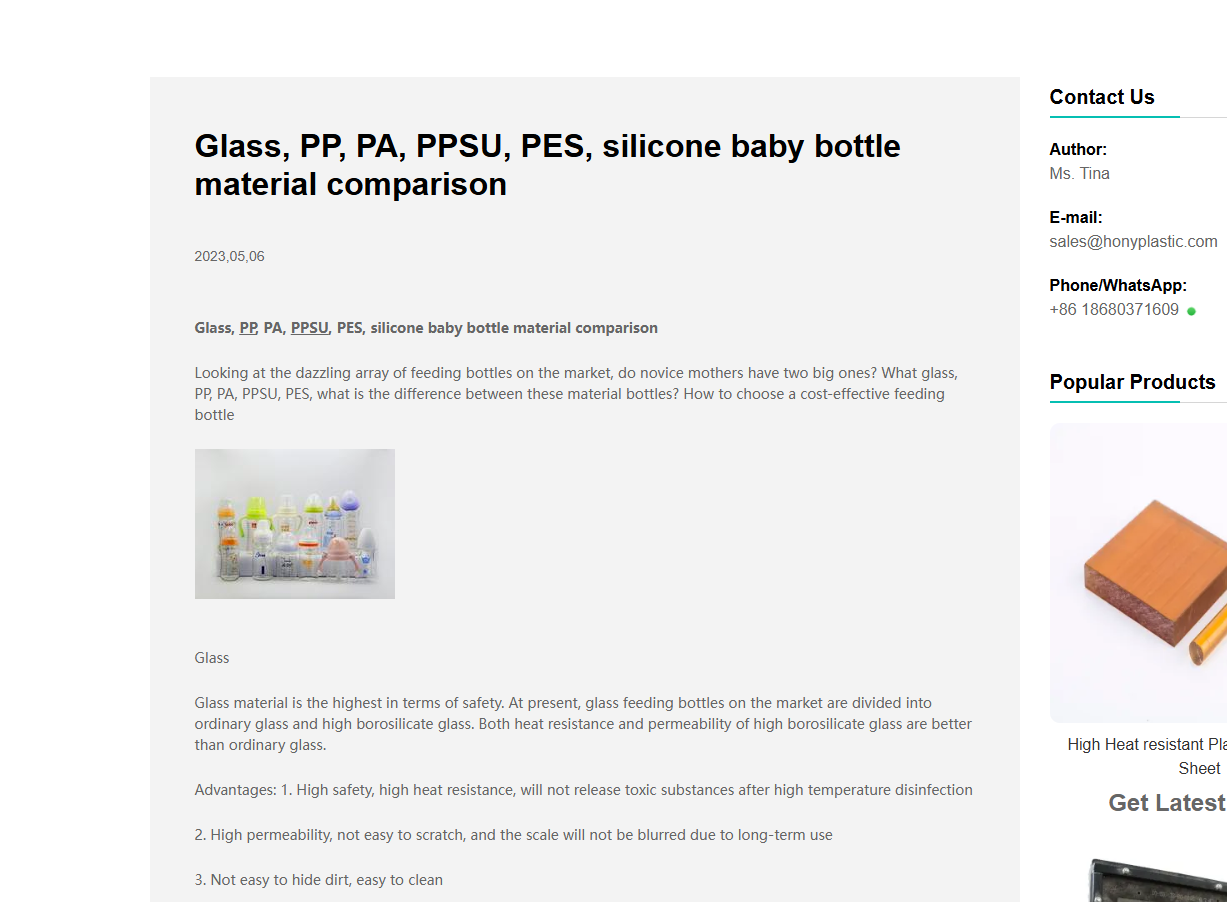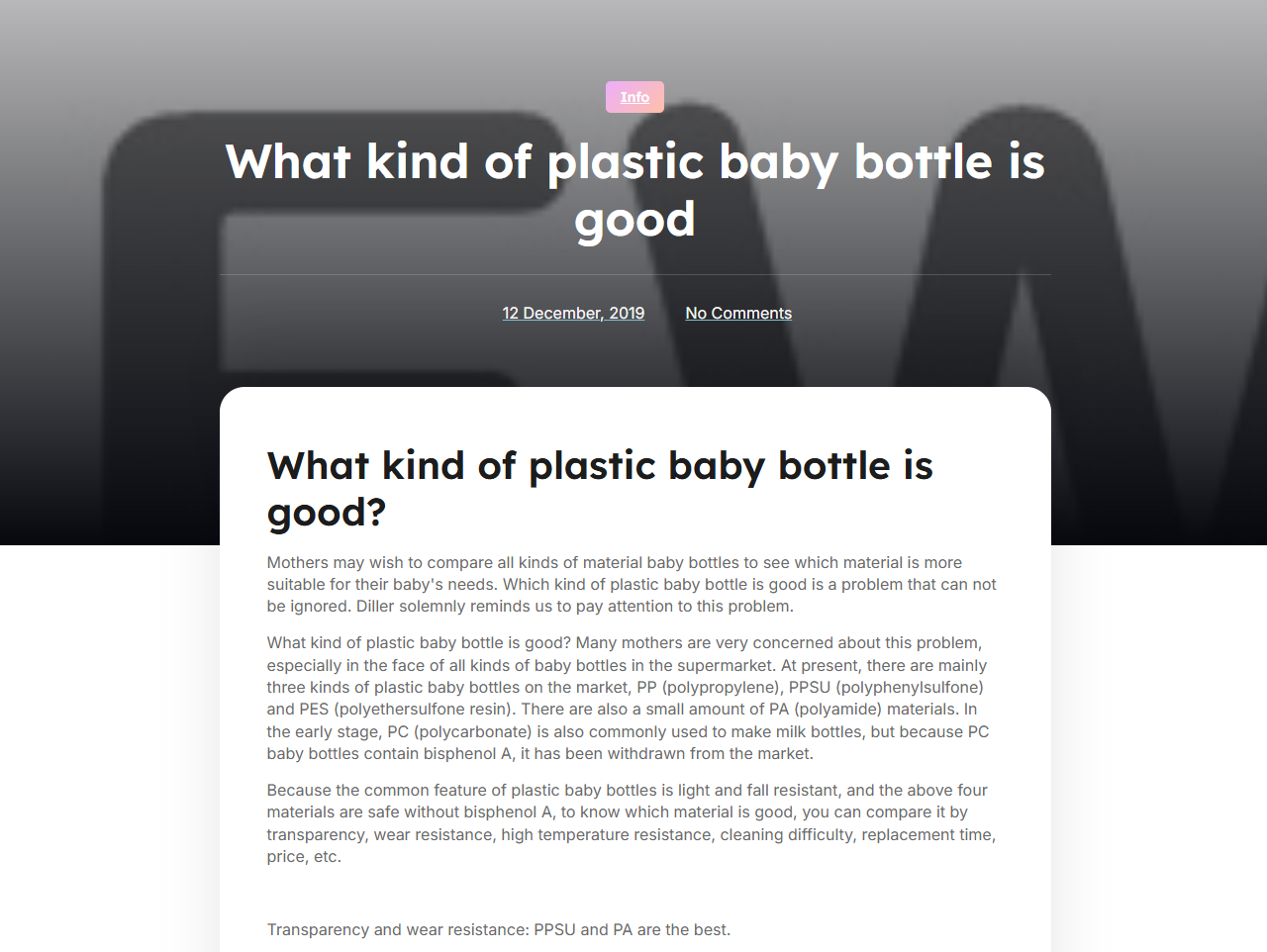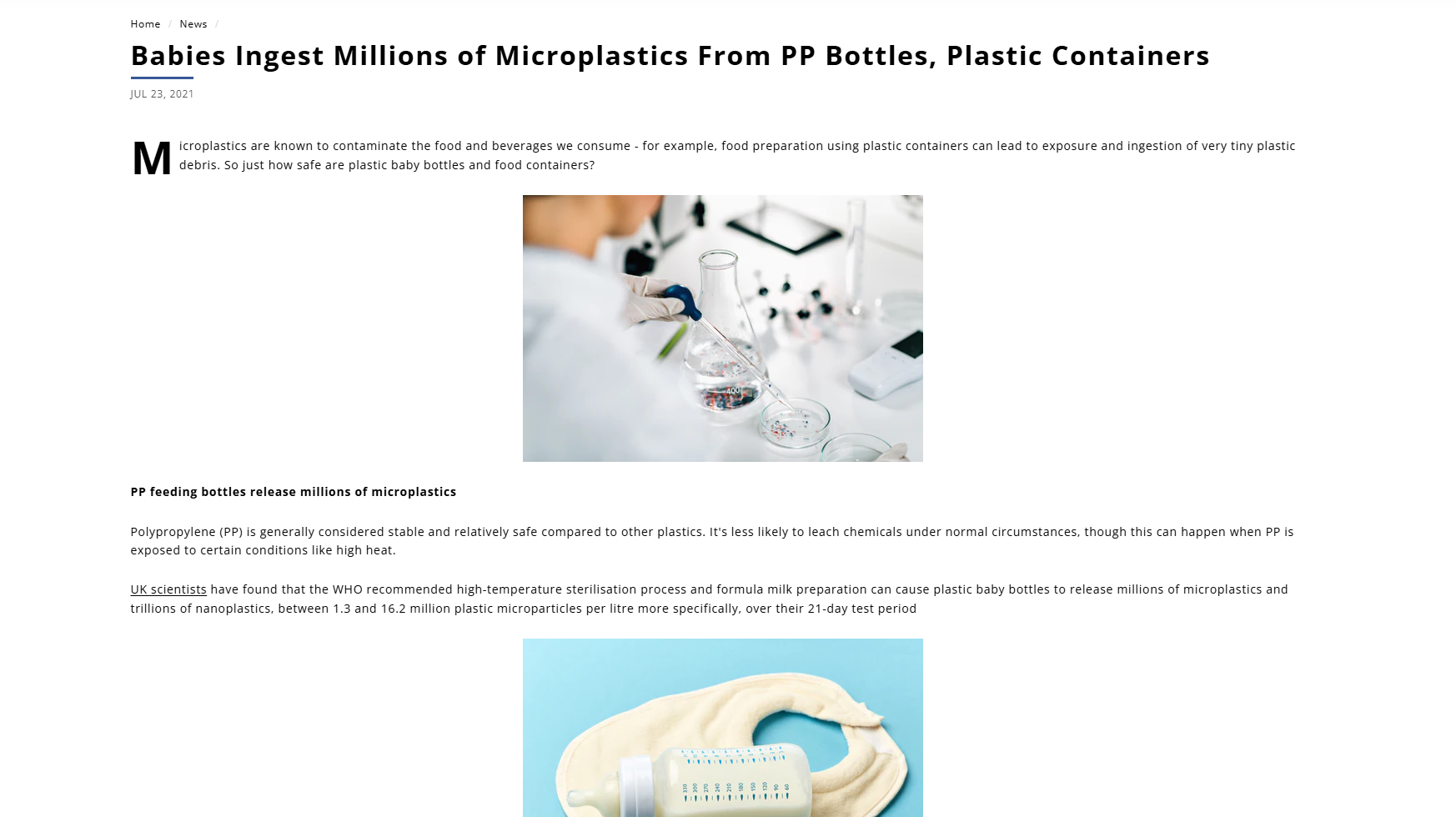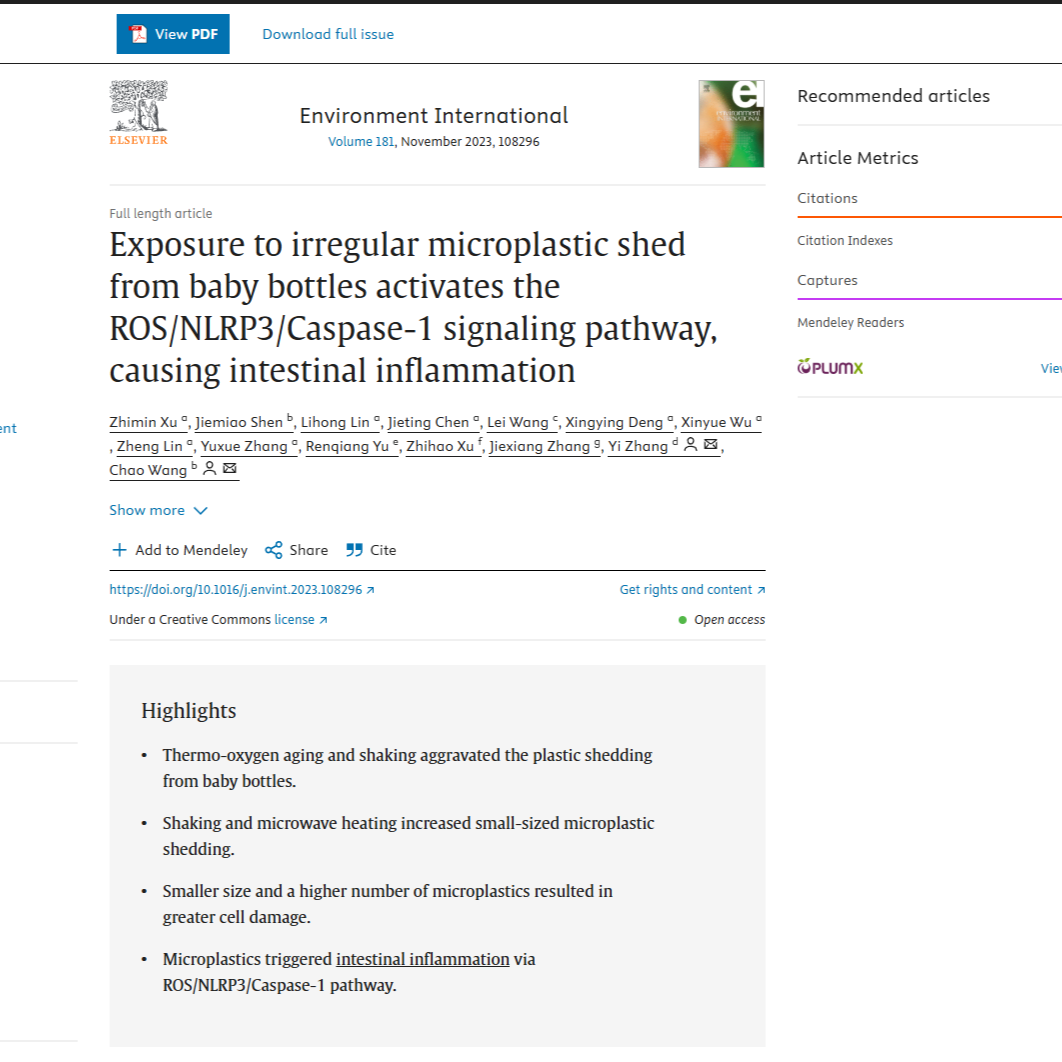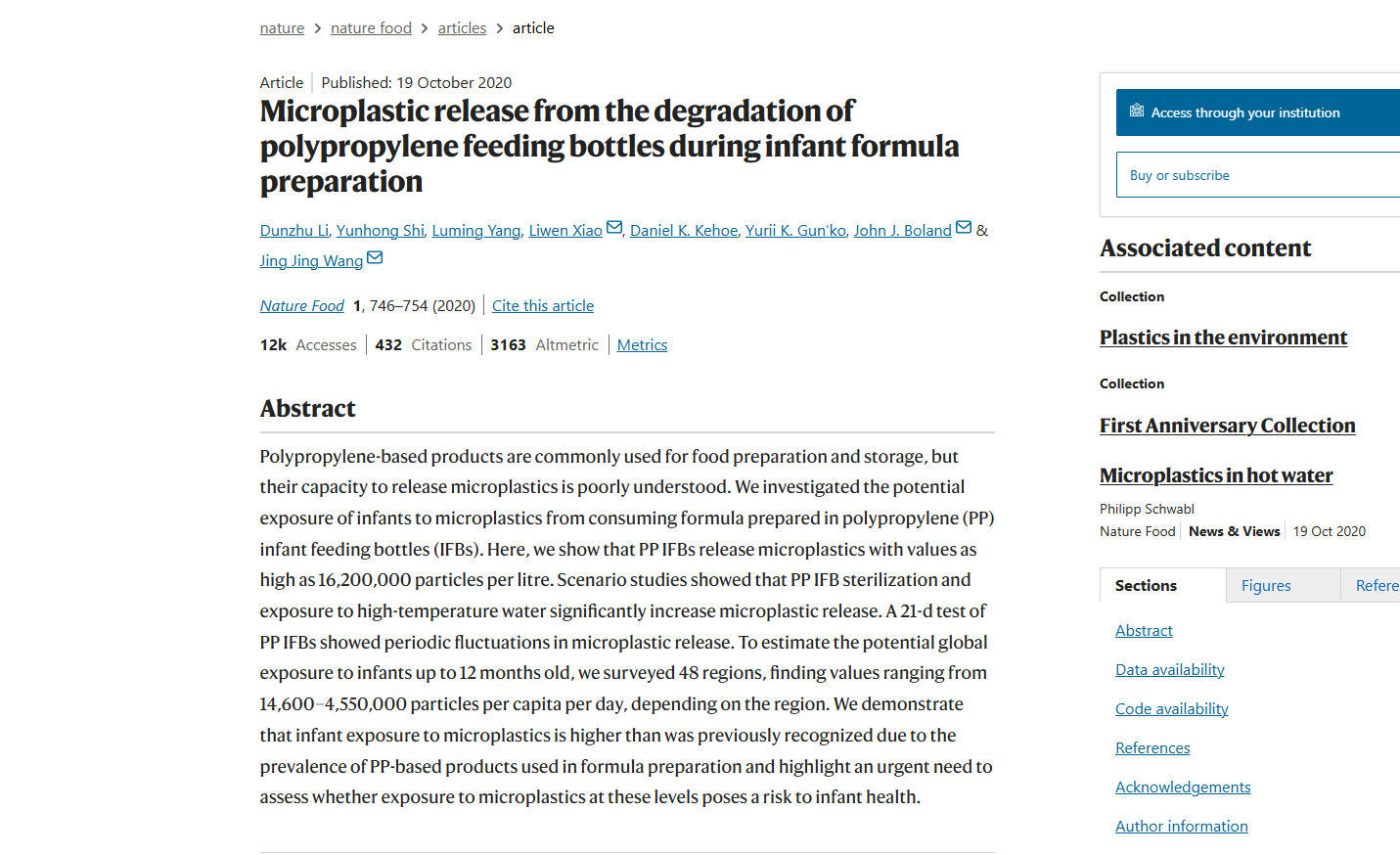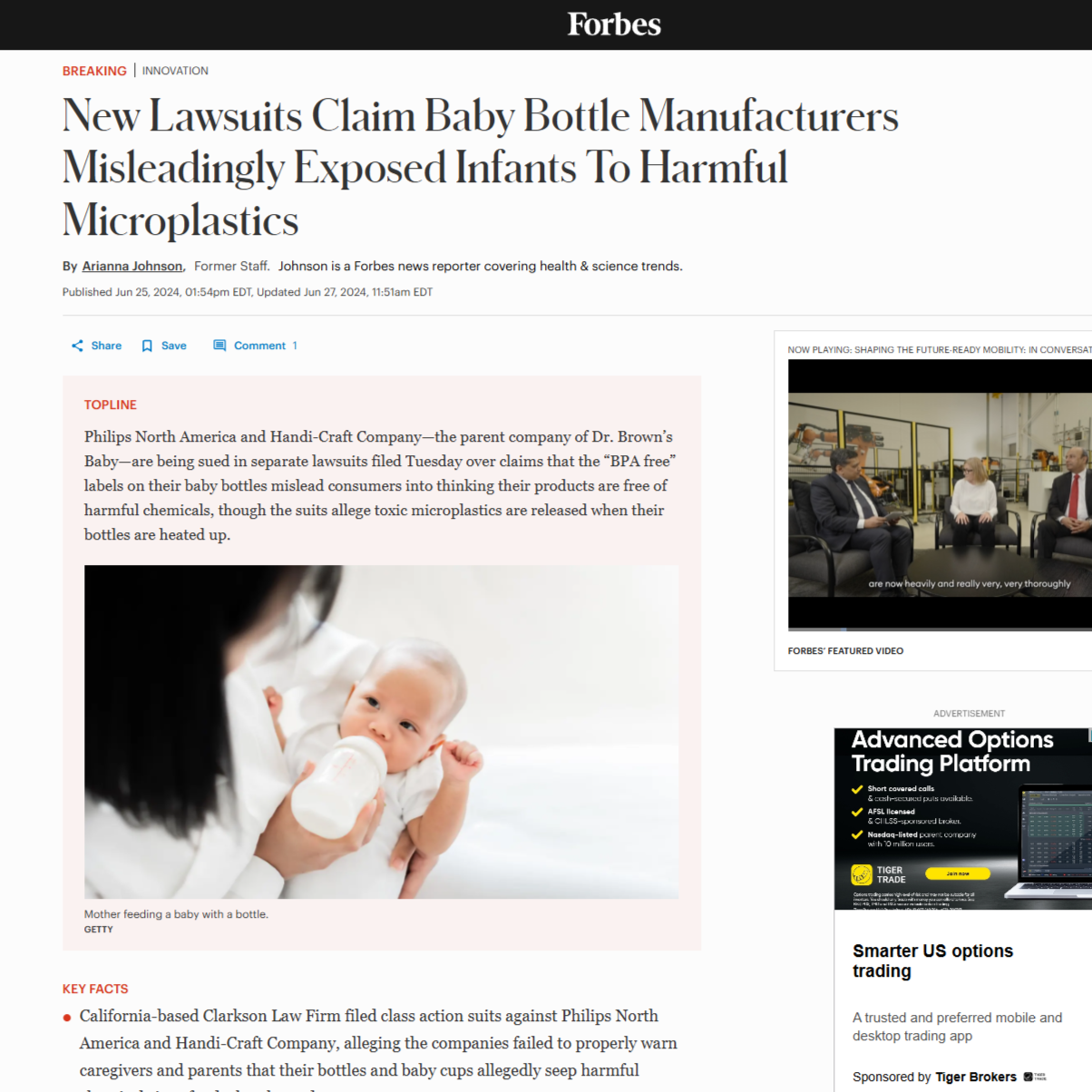Research Publications & Scientific Studies
-
Bottle Material Comparison - HONY Engineering Plastics LTD
This study conducted by third-party institution HONY Engineering Plastics (May 6th 2023), methodically compares the merits and limitations of major baby bottle materials - Glass, PP, PA, PPSU, PES and Silicone - to guide parents toward safe durable and practical options.
For long-term safety, clarity, abrasion resistance and heat resistance, PA is the top contending material.
-
What Kind of Baby Bottle Material Is Good - Diller Bottle
Diller Bottle evaluated plastic baby bottle materials - PP, PPSU, PES and PA - across transparency, durability, heat resistance, cleaning ease and lifespan.
PA triumphed in the following categories; Transparency, Durability, Heat Resistance and Lifespan. It was determined the cleaning ease factor was entirely dependent on the shape of the bottle rather than material.
-
Babies Ingest Millions of Microplastics From PP Bottles - Waters Co.
This research underscores a striking finding; commonly used PP baby bottles - when subjected to high-temperature sterilisation, hot water use and typical formula mixing - can shed 1.3 to 16 million microplastic particles per liter of liquid.
While the full health impact of ingesting micro- and nanoplastics remains uncertain, the prevalence of these particles in infant feeding underscores a need for safer practices with safer materials.
-
Microplastics from PP Baby Bottles and Intestinal Inflammation - Environment International
This research study published by Environment International (October 2023) reveals that PP baby bottles - when subjected to everyday practices like boiling, microwaving or shaking - shed irregular microplastics fragments that cause oxidative stress and inflammation in human intestinal cells.
This study highly suggests to make informed choices based on scientific evidence - not just convenience - and to opt for higher-grade materials (like PA) that don't degrade as easily under heat.
-
Microplastics Release from The Degradation of Polypropylene (PP) Feeding Bottles - Nature Food
A landmark study published in Nature Food (October 2020) revelaed a startling reality; polypropylene (PP) baby bottles can release up to 16.2 million microplastic particles per litre when handled with typical sterilisation and preparation methods.
Infants worldwide may be exposed to anywhere from 14,600 to 4.55 million microplastics daily, depending on regional feeding routines. These numbers far exceed expectations - adults generally ingest just a few hundred microplastics per day.
-
Class Action Lawsuits Against Major Baby Bottle Brands - Forbes
In June 2024, class action lawsuits were filed in California, USA against Philips Avent and Dr Brown's, accusing these manufacturers for misleading parents. The suits claim that although their PP bottles are labelled "BPA-free", they still leach microplastics when heated - a common step in sterilising or preparing formula.
While some components of the lawsuits have been dismissed in court, the lawsuits continue as they challenge these companies for not disclosing microplastic risks to caregivers.
